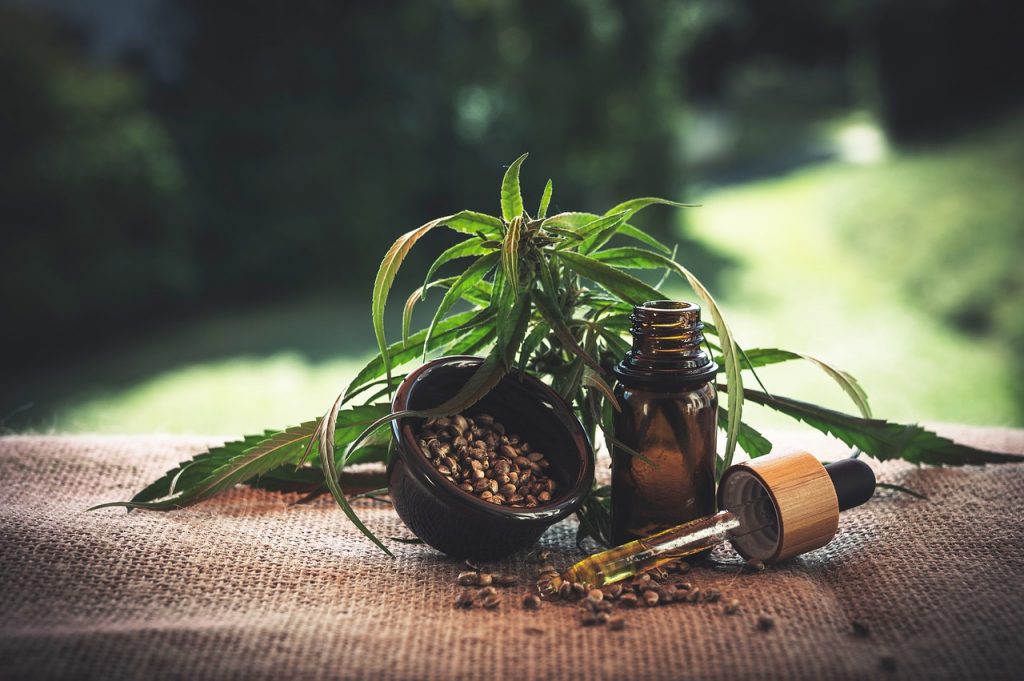How Cannabis Could Save The US Honeybee Population
The US Honeybee population is on the decline, however, new research suggests that cannabis could actually extend every bee's life, giving the population a fighting chance to recover.
This article is more than 2 years old
Humans aren’t the only species that could benefit from marijuana ingestion. Studies have shown that animals can also gain positive effects from the marijuana plant, including bugs such as bees. As the honeybee population declines, scientists have found that chemicals in cannabis can increase a bee’s life span.
Honeybees are imperative for crop growth and maintenance in the United States, responsible for pollinating over 100 different crops. Pesticides utilized by large agricultural companies have been a leading culprit for Colony Collapse Disorder, which has declined bee populations worldwide. While honeybee colonies have been slowly rebuilding since the disorder’s discovery, scientists, beekeepers, and environmentalists are trying to find remedies for colossal bee reduction.
Researchers at the University of Life Sciences in Lublin, Poland, spend most of their days feeding bugs substances that often help humans with bodily issues, like caffeine, black pepper extract, and even tumeric. Even though these substances produced beneficial outcomes, none of the studied insects had long-lasting or significant improvements after ingestion. The researchers turned to hemp extract, which is cannabis that’s low in THC, and found that the CBD in the substance helped improve honeybees’ lifespans.
The University of Life Sciences researchers’ discovery of cannabis is groundbreaking. Their studies show that CBD can prevent oxidative stress in honeybees and help combat the environmental pollutions they ingest. Though it was clear cannabis aided in these insects‘ livelihood, these Polish scientists weren’t sure how the chemical was working to sustain their life cycle better. The researchers did the subsequent trial where they let studied their bees outside instead of in cages to reflect the insects’ natural habits.

Since bees have entirely different organs and fluids in their bodies, scientists had to get creative when feeding them CBD, trying to figure out which form of cannabis they could digest for positive results. The researcher’s bees were split into three groups and fed different CBD substances. The first group was given CBD in sugary syrup, the second had CBD on a cotton strip, and the rest were provided sugar and glycerin as a control group.
After weeks of examination, the researchers found that both honeybee groups that ingested CBD lived longer and had higher concentrations of beneficial compounds in their bloodstream. Albumin was more present in bees given the cannabis extract, a protein responsible for fighting inflammation. Honeybees with CBD meals were better equipped to fight against environmental irritants and pollutants, which could rectify Colony Collapse Disorder.
Though cannabis has been proven to help honeybee colonies, how viable is it for farmers to feed their bees CBD? Though CBD is a relatively inexpensive compound, experts suggest farmers grow their own plants as an even more cost-efficient strategy. Though hemp plants don’t secrete nectar, bees are intrinsically attracted to these shrubs because they produce pollen.
Bees indeed love weed, and the insects gain anti-inflammatory benefits from ingesting it. Though many are worried about honeybee extinction, scientists want to remind the public that Colony Collapse Disorder is currently only happening to one subspecies. According to Discovery Magazine, the United States relied on other bee variants for pollination before the European honeybee was introduced to the continent.



